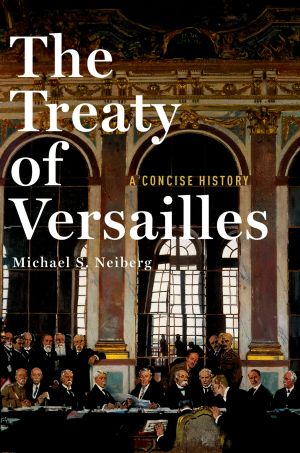The Treaty of Versailles

- Authors
- Neiberg, Michael S.
- Publisher
- Oxford University Press
- Tags
- history
- Date
- 2017-09-01T00:00:00+00:00
- Size
- 6.62 MB
- Lang
- en
Signed in 1919 between Germany and the Allied Powers, the Treaty of Versailles formally ended World War I. Controversial from the very beginning, the treaty still shapes the destinies of societies and states worldwide. British Prime Minister David Lloyd George said "It is all a great pity. We shall have to do the same thing all over again in twenty-five years at three times the cost," and French Marshal Ferdinand Foch declared that "This is not peace. It is an armistice for twenty years." At the time, observers read the treaty through competing lenses of peacemaking after the First World War, the future of colonialism, and the emerging threat of Bolshevism. A century after its signing, we can gain new perspectives on the treaty and its impacts by looking at how those histories evolved through the remainder of the twentieth century and into the twenty-first.
The author of several award-winning books, Michael Neiberg provides a clear and authoritative account of the Treaty of Versailles, explaining the enormous challenges of trying to put the world back together after the global destruction of the First World War. He shows how the treaty affected not only Europe but also the rest of the world. In China, the Allied decision to give the Shantung Peninsula to Japan led to a wave of protests known today as the May Fourth movement, which is seen as a foundational moment in the modern history of China. Global disillusionment with the treaty led to mass transnational movements that helped to set the foundations for Cold War debates about anti-colonialism. American rejection of the treaty also served as a mirror and a prism for American fears and ambiguities about its own international role. The treaty is, therefore, much more than its role in ending the First World War.